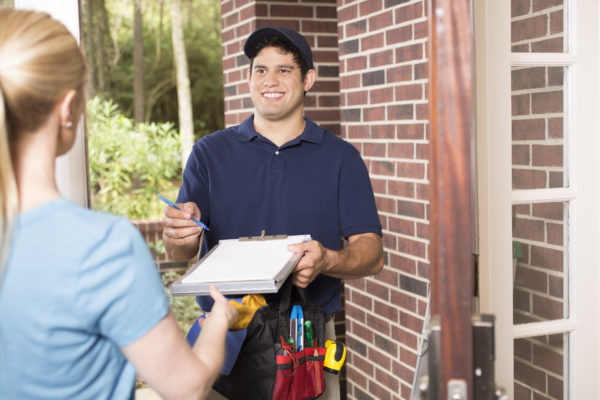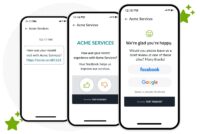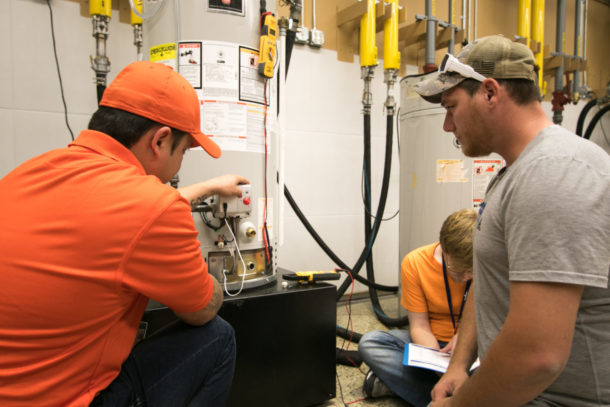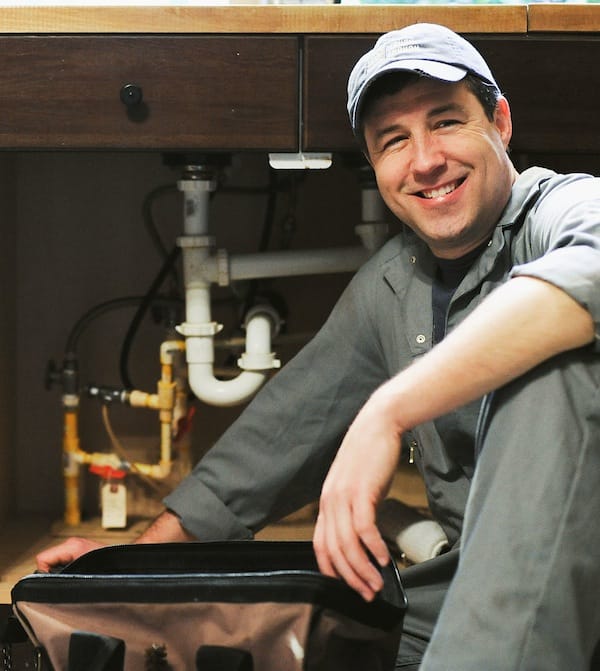Paul Figuly ExperienceEducation NIBCO INC. has announced the promotion of Paul Figuly to director, wholesale sales-east. In Figuly’s new role, he will coordinate regional sales strategies, build internal partnerships with customers and work with the regional sales managers to improve sales growth. Figuly will report to Kevin Wagler, vice president of wholesale sales. Paul Figuly Read more
Customer Service

Table of Contents
NIBCO INC. has announced the promotion of Paul Figuly to director, wholesale sales-east.
In Figuly’s new role, he will coordinate regional sales strategies, build internal partnerships with customers and work with the regional sales managers to improve sales growth. Figuly will report to Kevin Wagler, vice president of wholesale sales.

Paul Figuly Experience
Figuly joined the company in October 2015 as press sales manager and has held several positions, including assistant regional manager northeast and regional manager, Ohio Valley. Figuly brings 23 years of experience to his new role.
“Paul brings 10 years’ experience working at the company and 23 years of experience from the industry to his new role,” said Joe Choflet, vice president, sales and marketing. “We’re confident that Paul’s leadership will continue to drive success and strengthen our customer partnerships in the east region.”
Education
Figuly holds a Bachelor of Science in business administration from The University of Akron in Akron, Ohio.
Subscribe to our newsletter here: https://mechanical-hub.com/enewsletter/

For tradespeople, success hinges not just on technical expertise but on the quality of their relationships with clients. In a market where skills are often on par across the board, delivering exceptional customer service can set a tradesperson apart from the competition. Not only can excellent service enhance client satisfaction, but also it can foster Read more
For tradespeople, success hinges not just on technical expertise but on the quality of their relationships with clients. In a market where skills are often on par across the board, delivering exceptional customer service can set a tradesperson apart from the competition. Not only can excellent service enhance client satisfaction, but also it can foster repeat business and build a stellar reputation, all of which are essential for sustained success.
Below, we’ll go over seven tips for enhancing customer service and promoting stronger relationships in the trades.
-
Provide Clear Communication
First and foremost, being clear and communicative is crucial in the trades industry, where the specifics of the work might not be easily understood. Effective communication involves keeping clients well informed about job details, timelines, possible disruptions and progress. The better communication, the fewer misunderstandings and dissatisfaction. By making sure clients are consistently updated and feel listened to, tradespeople lay a foundation of trust and respect, which is indispensable for maintaining long-lasting business relationships.
-
Manage Expectations
Transparency from the start is key to building relationships as well. Tradespeople should be open with clients about what can realistically be accomplished given the available resources and time. Discussing limitations and setting clear, achievable goals right from the first meeting helps prevent client frustration with the final outcome. This approach also builds trust and minimizes the risk of negative feedback, thereby safeguarding the tradesperson’s reputation.
-
Exceed Client Needs
“Wowing” clients involves going beyond the basic requirements to provide service that adds real value to their lives. Whether it’s accommodating a client’s schedule or providing additional maintenance tips after the job is done, these actions enhance client satisfaction and loyalty, increasing the likelihood of repeat business and recommendations. For example, in sewer repair, a tradesperson might offer a complimentary follow-up inspection to confirm everything is functioning correctly and there are no further concerns. This approach makes the customer feel well cared for and valued.

-
Provide Proactive Problem-Solving
Generally, this relationship-building strategy requires anticipating potential issues and addressing them before they become problematic. This might mean advising on future risks to a plumbing or electrical system and how to avoid them. Showing foresight in this manner demonstrates that the provider is invested, not just in the immediate job but also in the client’s long-term welfare. This approach works to solidify a tradesperson’s reputation as thoughtful and reliable, encouraging clients to develop a lasting professional relationship.
-
Personalize the Client Experience
Making the whole process feel made to order can make a world of difference. This approach entails showing respect as well as a thorough understanding of individual client needs and preferences. It goes beyond remembering names; it’s about adapting communication styles, integrating personal preferences and showing genuine interest and respect for their space and time. Personalized service makes clients feel uniquely valued and cared for, significantly enhancing their overall experience and satisfaction.
-
Offer Flexible Solutions
Being able to accommodate different budgets and needs demonstrates a tradesperson’s adaptability and commitment to client satisfaction. By tailoring solutions to individual circumstances, tradespeople build stronger relationships and enhance their reputation as considerate and client-focused professionals. This flexibility can significantly increase client trust and encourage long-term loyalty.
-
Follow Up Consistently
Regular check-ins with clients after the completion of a job help confirm they remain satisfied. This is not just to address potential issues but also to offer continued support and advice. Such follow-up can transform a one-time job into an ongoing service relationship, providing tradespeople with a steady stream of loyal customers.
Cementing Success Through Service Excellence
Strong client relationships are the backbone of a thriving trade business. Putting these tactics into practice helps guarantee that clients are not only satisfied but also delighted with the service they receive. This in turn builds a better relationship and even encourages positive referrals.
Put simply, by prioritizing top-notch customer service today, tradespeople are investing in a prosperous and reputable tomorrow.
 Kareem Haddad is the owner of Absolute Rooter & Plumbing, a family-owned and operated company that has been improving the plumbing systems of Orange County and surrounding areas since 2010.
Kareem Haddad is the owner of Absolute Rooter & Plumbing, a family-owned and operated company that has been improving the plumbing systems of Orange County and surrounding areas since 2010.

Based on survey responses, the report covers how text messaging is being used in business communications today, predicts where the market is heading in the next 12 months, and explores what challenges and opportunities this creates for businesses. 70% of people say texting is the fastest way to reach them. That’s just one of the Read more
Based on survey responses, the report covers how text messaging is being used in business communications today, predicts where the market is heading in the next 12 months, and explores what challenges and opportunities this creates for businesses.
 70% of people say texting is the fastest way to reach them. That’s just one of the many findings in the 2024 State of Business Texting Report published today by Text Request, the industry-leading business messaging platform. The report, anchored in more than a thousand survey responses, details how organizations are texting with customers and employees, what trends to expect over the next calendar year, and what opportunities this creates for businesses.
70% of people say texting is the fastest way to reach them. That’s just one of the many findings in the 2024 State of Business Texting Report published today by Text Request, the industry-leading business messaging platform. The report, anchored in more than a thousand survey responses, details how organizations are texting with customers and employees, what trends to expect over the next calendar year, and what opportunities this creates for businesses.
“Rather than blasting out promotions to subscribers, which can be very effective, most organizations are using text messaging for everyday conversations and to replace phone calls,” says Text Request VP of Marketing Kenneth Burke, who led the survey and analysis. “Businesses are seeing that text is the most effective way to connect with customers and employees quickly and get a response, so they’re taking advantage of that opportunity for everyone’s benefit.”
Significant findings in the 2024 State of Business Texting Report include:
- 74% of people read every text they get
- 54% of organizations say text message is the most effective channel for getting a response
- 75% of organizations are texting for customer service
- 87% of consumers want to receive texts about appointment scheduling and reminders
- 66% of people get 20 or fewer texts per day—far less than the average email count of 156—making text a great way to stand out in communications
“If you’re going to reach someone quickly, you’ve got to text them,” says Text Request CEO Brian Elrod. “That’s something we’ve all felt, and this data supports that experience. Think about how helpful it is to be able to reach everyone immediately, and get a response. You can get twice as much done in half the time, cut costs, and increase revenue. That’s the trifecta.”
The report goes on to show how this data can be applied throughout organizations for customer service, sales, marketing, hiring, and more. To view the complete report, go to: https://www.textrequest.com/ebooks/state-of-business-texting-2024

One of the biggest things a home service professional needs when it comes to growing their business is great customer service. And that is where more and better sales will happen. Happy customers, when it comes to home services, are repeat customers. But what else can you do to sell more? First Impression No matter Read more
One of the biggest things a home service professional needs when it comes to growing their business is great customer service. And that is where more and better sales will happen. Happy customers, when it comes to home services, are repeat customers. But what else can you do to sell more?

First Impression
No matter what the circumstances, a first impression matters. But when you are a home service provider, you need to be extra vigilant. Why? Because as a plumber, you are entering someone’s private space – as a stranger.
It is your job to put them instantly at ease; being friendly and positive is essential. Since you never know what state the house or the person is in, being nonjudgmental and focusing on the job is necessary. Use your name to introduce yourself, and quickly find some common ground – the weather is often the easiest to use.
Value
When you are focused only on the upsell and increasing profits, you’re not likely to see a huge improvement. If, however, you approach it from a ‘what is value to this customer?’, things change; instead of trying to sell them the most expensive one, as them what they need and opt for the best value, often, customers will want regular maintenance, repairs, and more when they understand how it benefits them and the value it offers.
Additional services are where your skills as a plumber shine; most customers can’t do what you do – and in some cases, they don’t even understand it. Show them the issue and explain the solution. These issues could be anything from corrosion, leaks, old heaters, bad pipes, and more.
Training
Confidence is key when it comes to selling more services and products, and often, that takes some dedicated sales training. A sales training LMS can be used by the entire company, no matter how big or small, to ensure that everyone gets the same training and understands what matters most to the customer.
Clarity
Customers need the information they receive to be clear and effective. That means that saying it might cost X and it could take Y will feel uncertain to them. Using language that makes sense to your customer is important.
Transparency is essential; if you can go through a pricing structure and give them a strong suggestion of how long it will take, they will feel more secure in your services. You can tell them what the scope of the work is so that they are prepared for any mess, the time, and the cost in advance of agreeing to any work.
Other Services
Depending on the company you work for, or if you own your own company, you can talk about other services that they will need. Weave the different services into the conversation, or be bolder and suggest them and why they are beneficial. Many customers would prefer to have a single company or person do other jobs in the home once a rapport is made.
Getting calls in the first place usually comes from using these online techniques: Top 9 Most Effective SEO Strategies for Business – Mechanical Hub | News, Product Reviews, Videos, and Resources for today’s contractors. So, a combination of in-person sales and excellent online management is a must to truly see an increase in profits.

It’s safe to say that plumbing services will forever be in demand. It’s not a skill that is easily acquired and while many households might be able to resolve basic plumbing problems, it’s not always that simple. However, despite it being a much-needed service, there are a lot of plumbing companies out there, meaning you’re Read more
It’s safe to say that plumbing services will forever be in demand. It’s not a skill that is easily acquired and while many households might be able to resolve basic plumbing problems, it’s not always that simple.
However, despite it being a much-needed service, there are a lot of plumbing companies out there, meaning you’re in tough competition with both old and new businesses. These businesses might be doing a lot to acquire customers you’re after.
With that being said, here are some helpful tips to be one of the best plumbing companies in your area.

Build a website for online users to find you
Not all plumbers or plumbing businesses will bother getting a website, especially those who have been long-established and therefore don’t feel they need one.
However, with the digital world forever growing and transforming the way many choose to spend their money, it’s worthwhile to invest your time and effort into creating a website – even if it’s a basic one!
Building a website enables online users to find those, who might live locally and be in need of your services. It’s one of the first things that many people do when it comes to finding plumbers and other handy-type services in the area. If your business doesn’t exist online, then how do you expect new customers to find you?
While you might have committed customers now, they might not always be available.
Go above and beyond for current customers
When it comes to your plumbing business, focus on going above and beyond for your current customers. These, after all, are your bread and butter of business. They really are the individuals who are propping up your business all year round and most importantly, when times get tough.
With that being said, find ways to always provide more value and satisfaction for current customers. What could you offer as a reward for their loyalty? Perhaps a discount every so often that they can use on a bill from you. It’s these little treats and discounts that can often encourage your long-term customers to remain for years to come.
For newer customers, showing this attitude of going above and beyond, will also make a big difference to their viewpoint of the business and hopefully, they’ll find themselves coming back again and again for your services in particular.
Advertise locally and encourage word-of-mouth
With plumbing services, unless you’re a big company that’s got goals to go national or international, you may be relying on those who live locally for the business. Advertising locally is therefore an important part of running a successful plumbing business.
At the same time, you want to try and encourage word-of-mouth. Being chatty with your customers and ensuring they recommend you to anyone in the local area that they might know, is a good sign-off to have with every customer you have.
You may start to find you get more queries for new customers as a result and a demand for local work that has come from personal recommendations.
Make use of digital marketing
Digital marketing is something to be aware of when it comes to advertising your business. While you might not be the best at social media and the digital world as a plumber, there are certain companies out there that will be able to assist in your advertising needs online.
With digital marketing, it’s worth investing a bit of your money into marketing online. From paid advertisements that target local customers to building up a social profile on one of the many social media platforms, there are some great opportunities to be found with digital marketing.
A bit of digital marketing here and there can certainly help to build your business and attract customers from further afield. It’s something that might also open up opportunities for business expansion beyond your local area.
Hire the right plumbers for the business
Plumbers are an important hire to make when it comes to your business. The plumbers you have who are going out and representing your business need to be the creme de la creme of the plumbing world.
Hiring the right plumbers is crucial because every one of them will contribute positively – or negatively to the business reputation. Be selective with plumbers that you bring into the business and only do so when you feel confident that they’re the right fit.
It’s always useful to have plumbers who you can train from a young age or at least have come into the business with plenty of experience. That way, it can save a lot of time and effort on your part stressing about whether they’re the right fit.
Provide additional training to improve skillset
While it does require effort to train your staff, it’s always good to be able to provide additional training where possible. Improving your team’s skillset is always worthwhile, especially when it comes to more complex jobs and those individual jobs that they might not have experienced prior.
Think about what training might be available for you to make use of and to utilize in order to create a team that’s talented and knowledgeable for all plumbing needs.
Keep an eye on what your competitors are up to
Finally, when it comes to building a successful business of any kind, it’s always good to take a look at what your competitors are up to. After all, they might be doing something that you’ve missed or could do better.
For plumbing companies, they all offer the same service, which means finding ways in which your own business might be able to stand out. Consider what you might want to do or introduce in order to stand out from your competition and effectively steal prospective customers from those other businesses.
Being the best plumbing company in your area is a title that you should be keen to earn. Use these tips to help become one of the best, as well as have a reputation that only benefits the business over time.
